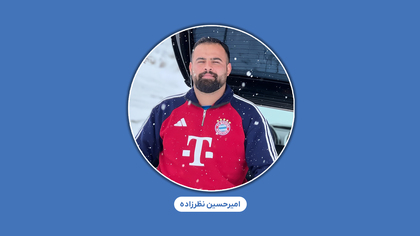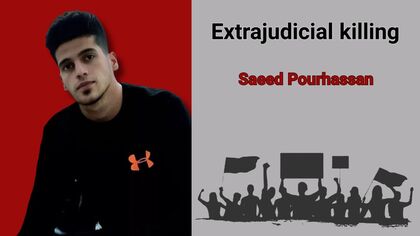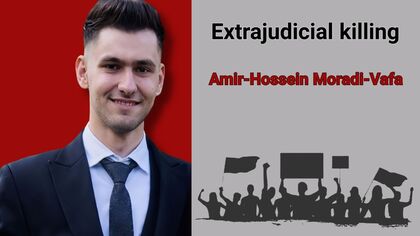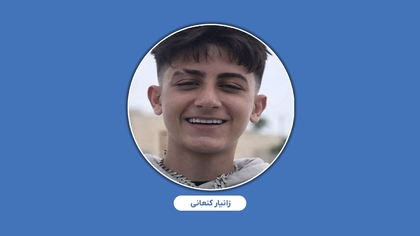Arabs urge Russia to back Syria peace plan
19:17 - 12 March 2012

KURDPA - Gulf Arabs told Russia in blunt language on Saturday its failure to take a tough line on Syria had allowed killing to continue and urged Moscow to back an Arab peace effort that includes a call for Russian ally President Bashar al-Assad to step aside.
Qatar, which with Saudi Arabia has led efforts to isolate Assad, also told Arab ministers in Cairo and the Russian foreign minister who joined them, it was time to recognize the exiled Syrian National Council as Syria\'s legitimate representative.
Arabs and Western states have until now held off from such a step, in part because diplomats have said the group has not always shown a united front and it was not clear whether it could command the support of protesters on the streets of Syria.
Sergei Lavrov, addressing the meeting at the Arab League headquarters in Cairo, gave no indication that Moscow\'s position had shifted. He told Arabs that Russia was not protecting Assad but said no one side could be blamed for the violence.
\"We must send a message to the Syrian regime that the world\'s patience and our patience has run out, as has the time for silence about its practices,\" Qatari Prime Minister Sheikh Hamad bin Jassim al-Thani said in an opening address.
Arabs, particularly Gulf states who are broadly opposed to Syria\'s alliance with their regional rival Iran, were frustrated by Russia\'s veto of a U.N. Security Council resolution based on an Arab peace plan. China also vetoed it.
The plan called for ending violence and for Assad to hand powers to a deputy so talks with the opposition could start.
Moscow and Beijing have, however, backed a Security Council resolution expressing \"deep disappointment\" at Syria\'s failure to allow the U.N. humanitarian aid chief to visit Syria.
\'LICENCE TO EXTEND BRUTALITY\'
\"We must stop issuing hollow resolutions and taking spineless positions,\" Saudi Foreign Minister Prince Saud al-Faisal said in a speech addressing Arab ministers and Lavrov, who stayed on the auditorium podium after addressing ministers.
\"The position of those countries which thwarted the U.N. Security Council resolution and voted against the resolution of the General Assembly gave the Syrian regime a license to extend its brutal practices against the Syrian people,\" He added.
Russia and the Arab ministers said they agreed on five points in Cairo, namely the need to end violence \"from any source\", the need for unbiased monitoring, opposition to foreign intervention, delivering humanitarian aid and supporting the U.N.-Arab League envoy on Syria, Kofi Annan.
Syrian opposition official Abdel Baset Seda told Reuters the points in the joint statement would not resolve the crisis.
\"The only way for the Syrian crisis to end is by a full implementation of the Arab peace plan that includes the call on Bashar al-Assad to hand over powers,\" he said from Turkey where he was attending a meeting of the Syrian opposition.
After the Security Council resolution condemning the Syrian authorities was vetoed, the U.N. General Assembly voted to back a similar decision. But such steps are not binding.
Lavrov told ministers Russia \"is not protecting any regime. The most urgent task is to end all violence.\" He also said Russia was sticking to its principle of not interfering in the internal affairs of other countries.
Moscow, a long-standing ally of Damascus and its main arms supplier, has vetoed two U.N. resolutions, saying they were biased. It says both the government and rebels should be blamed for the violence that has killed thousands of people.
Responding to Lavrov, Qatar\'s minister said a ceasefire was not enough and said those responsible for violence should be held to account. He also said the media and aid must be allowed into Syria and prisoners detained in the protests should be freed, listing points laid out in the Arab plan.
Qatar, which with Saudi Arabia has led efforts to isolate Assad, also told Arab ministers in Cairo and the Russian foreign minister who joined them, it was time to recognize the exiled Syrian National Council as Syria\'s legitimate representative.
Arabs and Western states have until now held off from such a step, in part because diplomats have said the group has not always shown a united front and it was not clear whether it could command the support of protesters on the streets of Syria.
Sergei Lavrov, addressing the meeting at the Arab League headquarters in Cairo, gave no indication that Moscow\'s position had shifted. He told Arabs that Russia was not protecting Assad but said no one side could be blamed for the violence.
\"We must send a message to the Syrian regime that the world\'s patience and our patience has run out, as has the time for silence about its practices,\" Qatari Prime Minister Sheikh Hamad bin Jassim al-Thani said in an opening address.
Arabs, particularly Gulf states who are broadly opposed to Syria\'s alliance with their regional rival Iran, were frustrated by Russia\'s veto of a U.N. Security Council resolution based on an Arab peace plan. China also vetoed it.
The plan called for ending violence and for Assad to hand powers to a deputy so talks with the opposition could start.
Moscow and Beijing have, however, backed a Security Council resolution expressing \"deep disappointment\" at Syria\'s failure to allow the U.N. humanitarian aid chief to visit Syria.
\'LICENCE TO EXTEND BRUTALITY\'
\"We must stop issuing hollow resolutions and taking spineless positions,\" Saudi Foreign Minister Prince Saud al-Faisal said in a speech addressing Arab ministers and Lavrov, who stayed on the auditorium podium after addressing ministers.
\"The position of those countries which thwarted the U.N. Security Council resolution and voted against the resolution of the General Assembly gave the Syrian regime a license to extend its brutal practices against the Syrian people,\" He added.
Russia and the Arab ministers said they agreed on five points in Cairo, namely the need to end violence \"from any source\", the need for unbiased monitoring, opposition to foreign intervention, delivering humanitarian aid and supporting the U.N.-Arab League envoy on Syria, Kofi Annan.
Syrian opposition official Abdel Baset Seda told Reuters the points in the joint statement would not resolve the crisis.
\"The only way for the Syrian crisis to end is by a full implementation of the Arab peace plan that includes the call on Bashar al-Assad to hand over powers,\" he said from Turkey where he was attending a meeting of the Syrian opposition.
After the Security Council resolution condemning the Syrian authorities was vetoed, the U.N. General Assembly voted to back a similar decision. But such steps are not binding.
Lavrov told ministers Russia \"is not protecting any regime. The most urgent task is to end all violence.\" He also said Russia was sticking to its principle of not interfering in the internal affairs of other countries.
Moscow, a long-standing ally of Damascus and its main arms supplier, has vetoed two U.N. resolutions, saying they were biased. It says both the government and rebels should be blamed for the violence that has killed thousands of people.
Responding to Lavrov, Qatar\'s minister said a ceasefire was not enough and said those responsible for violence should be held to account. He also said the media and aid must be allowed into Syria and prisoners detained in the protests should be freed, listing points laid out in the Arab plan.



